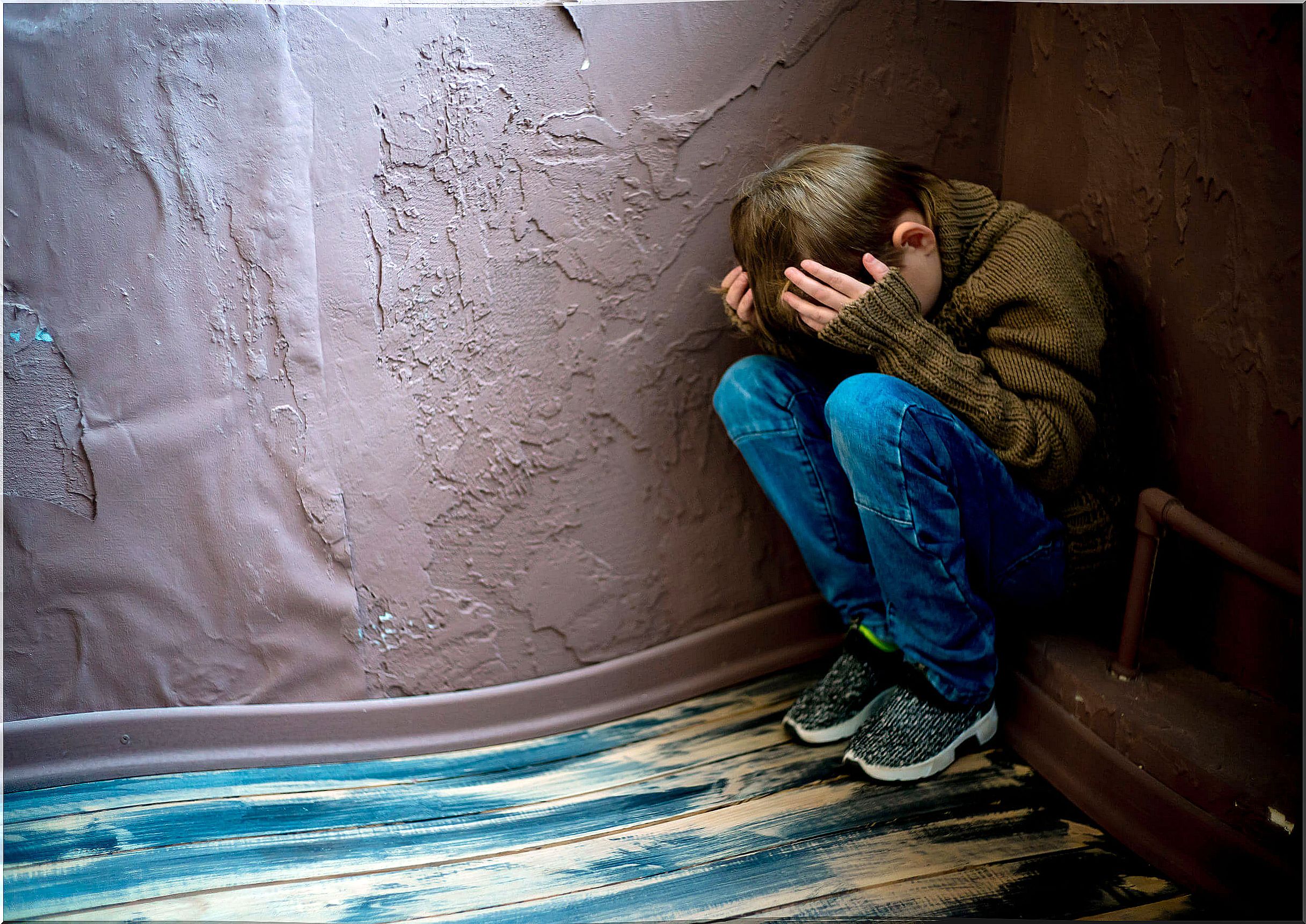Educate With Love And Not Obedience Based On Fear And Severity
Contrary to what many people think, severity does not guarantee successful parenting. Shouting obedience and rigid guidelines can lead to fear and insecurity. It is curious how within our own language “the obedient and docile child” is associated with something desirable by many families.
However, behind the docile child, low self-esteem and unhappiness can be found. There is the creature that has so many walls put up that it understands its life as a prison. In addition, we shape minds that are incapable of taking the initiative because they expect others to always tell them what to do.
The happy child is the one who explores, who touches, who laughs, who communicates. Thus, when choosing what type of parenting we want for our children, we must choose the one that allows them to grow with integrity. Here are some simple guidelines to ponder.
The severity in education

All of us long for children who obey us, caring children and who follow the rules we set for them.
While it is true that this is appropriate and expected, we must not neglect that these behaviors are harmonized with others.
- Obedience to the rules must go hand in hand with understanding.
- A child must understand what is expected of him at all times and why he must follow a rule.
Some common phrases are: “I obey Mom because she wants the best for me. I pick up the toys every night because I have to keep the room tidy. I keep silent when others speak so that I can listen and respect. “
- Children should not obey out of fear or fear of punishment. Behavioral psychology does not always work when it comes to educating.
- If they get used to the fact that in each mistake and in each inappropriate act the cry or the reproach carried out with marked severity will appear, it is most likely that they will develop fear and anger towards us, their parents.
We will explain it to you in more detail below.
Education based on fear brings unhappiness
Early childhood is that which occurs between the first month of life and 6 years of age, as indicated by professionals such as Elsa Castañeda and Jesús Palacios. Everything that happens in this period will be key to its further development.
- Something that every parent wants is that when we ask a child to do something, they obey.
- In this way we avoid risks and the child is integrated into family dynamics.
Now, minors will always want to go a little beyond the norms to prove themselves, as well as us.
- If severe punishment, yelling and scornful reproach appear every time they go outside of these limits, children can react in two ways.
- We will feed their anger, so that they will challenge us even more or withdraw into themselves.
- A child should not spend his early childhood feeling fear every day.
- Fear vetoes self-esteem and puts undue stress on that infant brain that is still maturing.
- Sanction-based parenting makes children live focused only on external recognition. We will give the world indecisive people who will have no confidence in themselves.
Every creature that discovers the world through fear because of his family grows unhappily. Thoughts such as: “If the people who love me most frighten me, the world is a place from which I must defend myself.”
Educate with love and respect

- Educating with respect is teaching the child what is expected of him at all times. Likewise, he favors himself at every moment, being free to explore the world safely by our side.
- To educate with love, you do not need shouting or much severity, but arguments that are offered with a relaxed, clear and close voice.
- If we want to educate with love to get obedient children, it is necessary to know how to listen. Pay attention to what the thoughts are and based on these, suggest, clarify and guide.
- You don’t want to have perfect children. The ideal is to raise happy children who know the rules of the family and of society itself.
- In order to educate, it is necessary to give children a voice. If we focus on sanctioning, reproaching them and pointing out only what they do wrong, we will give the world people who are not very assertive.
- Instead of using sternness when they misbehave, explain what they have done wrong and how they can do it right.
- Keep in mind that it is not good to demand excessively. You do not want to have ideal, submissive and quiet children.
Look at the natural talents of your children so that they feel safe when it comes to achieving what makes them happy, and learn to “connect” with your child rather than sanction. If you understand his needs, you will better guide him in day-to-day parenting.
Raising children is complex
Sometimes as parents we can rigidly think that things have to be one way or another. The truth is that during the growth process it is necessary to promote understanding, openness to new possibilities and communication. If any of these issues fail, problems may surface in the future.
If you think you have a problem related to what we discussed earlier, approaching a psychologist could have excellent benefits for all members of the family.









